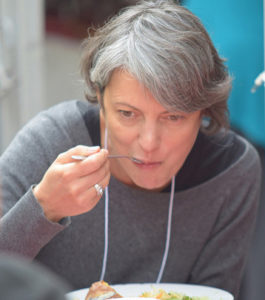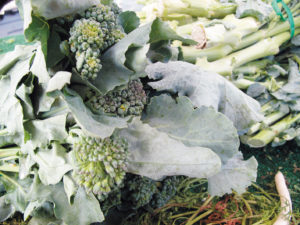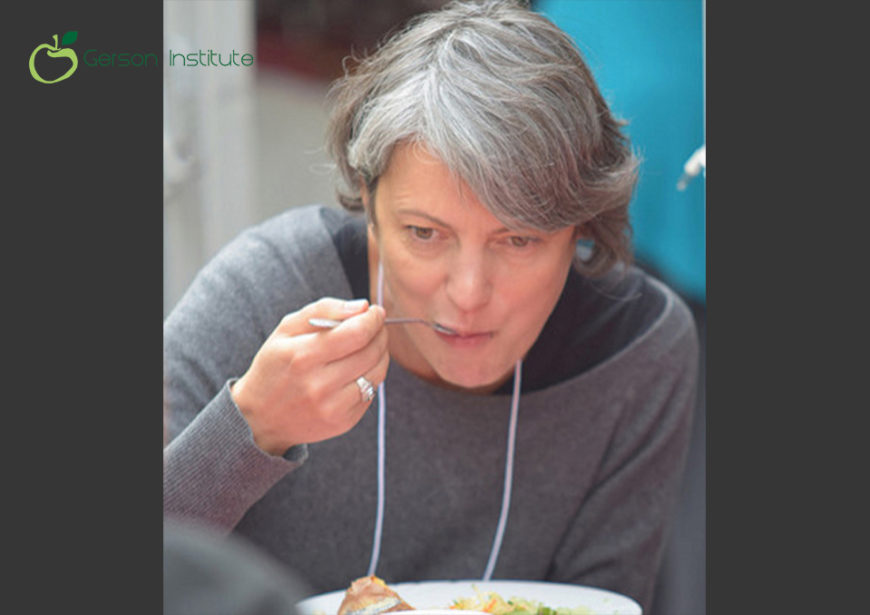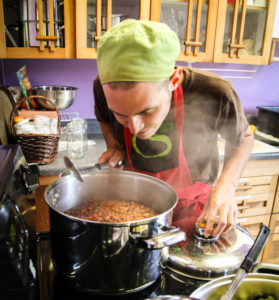 Having a healthy relationship with foods used on the Gerson Therapy is absolutely essential for a successful healing outcome. We’ve all felt the comfort that a favorite home cooked meal brings; how enjoying it while surrounded by loved ones helps make each part of the meal taste especially good. You may have caught glimpses of the person cooking in the kitchen. Maybe you were the one in the kitchen, preparing the meal for those you love.
Having a healthy relationship with foods used on the Gerson Therapy is absolutely essential for a successful healing outcome. We’ve all felt the comfort that a favorite home cooked meal brings; how enjoying it while surrounded by loved ones helps make each part of the meal taste especially good. You may have caught glimpses of the person cooking in the kitchen. Maybe you were the one in the kitchen, preparing the meal for those you love.
For many of us, memories related to food are some of our earliest and clearest memories. Food carries a special power and strength that comes as much from the food itself, its preparation, and it’s taste, as from where it was enjoyed and who with. If it’s a recipe that was passed down from generation to generation, this too can add a certain emotional weight to the act of eating. I bet you can even picture family members preparing it, with the family enjoying and feasting together.
It’s nearly impossible to not develop an emotional attachment to certain foods and meals, and yet, now that you are beginning or continuing on the Gerson Therapy, very few of these precious meals can be cooked in the way you are used to. However improbable it may now seem, the solution to the problem of “giving up what you love to eat” may rest on a change of perspective. Think of it as an adventurous prospect of recreating such meals a la Gerson, unlocking new and healthy culinary inspiration coupled with an enjoyable and new path to explore.
Many on the Gerson Therapy come to a completely new way of thinking about and enjoying food, translating to positive feelings towards food as medicine. With this new perspective comes an entirely different satisfaction from your meals; but this new view doesn’t come overnight. Like most things, it must be developed over time. Rest assured – we know you have what it takes to make this shift and become a more mindful eater.
Training in Mindful Eating 
Let’s say that your “training in mindful eating” begins right now. Or rather, you have been training your whole life, but now you will be doing it even more mindfully.
Wait – First thing’s first: what does this even mean, to be a mindful eater? According to The Center for Mindful Eating, “mindful eating is allowing yourself to become aware of the positive and nurturing opportunities that are available through food selection and preparation […]”.
Beginning the Gerson Therapy, the foods that can be eaten are already pre-selected for their “positive and nurturing opportunities”. You could say that this part has been made especially easy!
Knowing Your Nutrients
The nutrition within Gerson foods is just one part of their “positive opportunities”, albeit one fulfilling a very important role in your healing. Building your personal knowledge of just how good these Gerson selected foods are for you could greatly strengthen with just a little bit of nutritional research. You might have read our blog earlier this year about Gerson Therapy Nutrition Necessities, or perhaps you have the new Gerson Therapy Cookbook and noticed how many recipes contain a box titled “Health Benefits”. If you don’t yet have the book to reference, one website that contains great nutritional information is The World’s Healthiest Foods at whfoods.org – it’s certainly worth a visit!
 Knowing as much as you can about produce items – let’s pick broccoli – is one great way to start building a more complete story and deepen appreciation for your produce. This is especially true if it’s something you never really liked, or at least never thought you would before beginning the Gerson Therapy.
Knowing as much as you can about produce items – let’s pick broccoli – is one great way to start building a more complete story and deepen appreciation for your produce. This is especially true if it’s something you never really liked, or at least never thought you would before beginning the Gerson Therapy.
Broccoli is incredibly high in both vitamin K and vitamin C, as well as an excellent source of chromium, folate and fiber. Did you know that? Or did you know that broccoli is also a source of pantothenic acid, vitamin B6, vitamin E, phosphorous, manganese, choline and vitamin A? It’s a pretty wide range, and when it comes to nutrition, variety rules. Being even slightly more familiar with produce’s nutritional composition can provide an additional boost of encouragement when it comes time to add it to your diet.
Know Where it Comes From
Another part of building a positive story of your produce, like broccoli, has to do with where it came from. And I don’t mean which grocery store! All produce for the Gerson Therapy started as a seed in the earth on an organic farm. If you’re lucky, this farm won’t be very far from where you live. At least two months will pass from when this seedling first sprouts above the soil to when a full head of broccoli will be harvested. Over this time, the plant begins taking in necessary nutrients through its roots. It’s very important that the soil these roots spread out into contain all the microorganisms and nutrients that will ultimately ensure the plant gets what it needs. If the plant gets what it needs, then and only then can we get what we need from the plant.

Besides what the plant is pulling up from the earth, as it grows leaves the chlorphyll within the plant is capturing sunlight and converting it into carbohydrates, which ultimately can be used and absorbed by us. Oxygen – that stuff we can’t live without – is also produced by the plant during this series of exchanges.
I must strongly suggest that a visit to a local farm would be invaluable in helping to develop a clear and positive image of produce growing healthily. This image can then be recalled, consciously or not, just before your next opportunity to purchase produce. As you remember and recall each item’s “story”, allow the positive thoughts to continue through preparing these items and when consuming these foods too.
Stay tuned for Mindful Eating: Part II, where I’ll describe mindful eating practices while eating and how we can actually heighten our taste-buds by chewing!
Want to develop a positive, healing relationship with food?
Check out our NEW Gerson Kitchen Digital Bundle!!
Over 2 hours of online Gerson cooking and juicing tutorials PLUS the Gerson Therapy Cookbook E-book!
Join our Email List and
Follow Along on Facebook, Instagram and Twitter!
Written by: Eric Freeman | Eric Freeman is the Head Chef at the Gerson Institute, co-author of the Gerson Therapy Cookbook and host of the upcoming online Gerson Kitchen Series.
Post by: Nicole Ferrer



